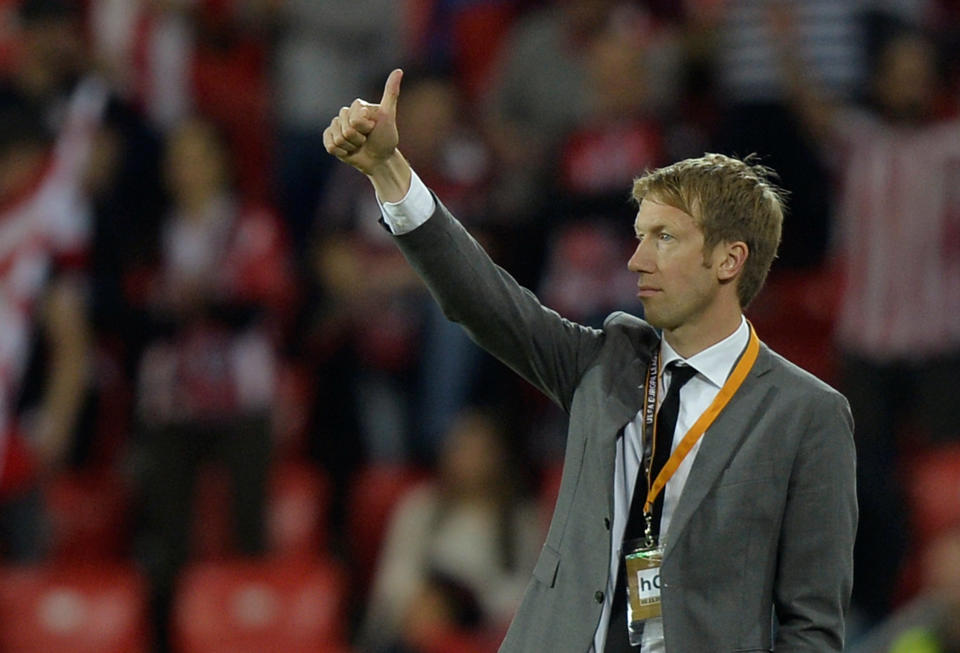Allardyce's comments on British coaching ignore the success of those willing to work hard

Brian Clough was never one to hold his opinions back. The former Nottingham Forest and Derby County boss would often speak his mind, and once famously took John Motson to task over the state of football coverage.
“You and your colleagues are turning us off from family entertainment on a Saturday night by lecturing us,” Clough remarked, before Motson unwittingly encouraged him to expand on his point.
It makes you wonder what Clough would think of today’s landscape. No longer confined to just TV, the sheer quantity of football coverage often engulfs any potential quality, in part due to the echo chamber that some situations produce.
READ MORE: Mourinho ‘shocked’ Chelsea let Matic go
READ MORE: Do Arsenal really get worse in November?
Certainly, that’s what it felt like when Richard Keys decreed the death of British coaching. Flanked by longtime co-host Andy Gray and Sam Allardyce, the trio discussed the ever-growing struggle facing British coaches. Allardyce talked about a glass ceiling, and the fact that, in his eyes, English coaches had nowhere to go.
The discussion was in part sparked by Leicester City’s decision to dismiss Craig Shakespeare and hire Claude Puel, a coach with two French league titles and almost twenty years of management experience to his name.
At no point, however, did they discuss the examples of English coaches that are thriving. People like Paul Hurst at Shrewsbury, Chris Wilder at Sheffield United, or perhaps the best example, Graham Potter of Östersunds FK.
Currently the only English manager competing in Europe, Potter’s playing career was nothing sensational. At its peak, he played just over half-a-dozen games in the Premier League with Southampton, before retiring with Macclesfield Town in 2005.
His subsequent coaching career is a fascinating journey that started at Hull University where he was the football development officer. He took a similar role at Leeds Metropolitan University before moving to Sweden in 2011. The Solihull-born coach openly admits his time in higher education was the ideal preparation for his current role as manager of Östersunds.
“It taught me a more holistic approach and prepared me for the experience of working abroad,” he said. “Where your cultural beliefs are challenged and, sometimes, turned on their head.”
When Potter arrived in Sweden Östersunds were in the fourth division, and in danger of folding. The club’s chairman, Daniel Kindberg, was after a young coach who could help reverse their spiral.
“I suppose the club took as much of a punt on me as I did on them,” Potter said earlier this year. “Daniel was looking for a young coach and luckily enough I fitted those requirements. I was looking to get back into football and I was suppose I was fortunate to start where results weren’t the be all and end all. You make mistakes at the results end of football and you can be out on your ear pretty quickly.”
They earned back-to-back promotions in Potter’s first two seasons at the club. In 2015, after three years in the Superettan, they finished second and were promoted to Sweden’s top division –the Allsvenskan– for the first time in their history.
The 42-year-old was not finished there though. Östersunds won the Swedish Cup back in April, beating IFK Norrkoping 4-1. That handed them the chance to qualify for the Europa League, if they could first beat Greek side PAOK, and then Turkish giants Galatasaray over two legs. Amazingly, they did just that, and now sit top of their Europa League group ahead of Zorya, Athletic Bilbao and Hertha Berlin.
Talents
There has been no sharp investment since promotion though. Rather, Potter has taken raw talents and developed them. Players like Curtis Edwards. The midfielder was once on the books of Middlesbrough, before dropping into non-league football with Spennymoor Town and Thornaby. The move to Östersunds in 2016 has reignited his career and saw him score in the 2-2 draw against Bilbao.
Potter’s approach is more than just training drills though.
“The nearest town here is two and a half hours away and we have to create a different environment, one where we can develop players holistically – we want to improve the person, not just the player,” he said. “We want to help the players be more comfortable in their own skin, a bit braver, a bit more aware and more understanding of each other.”
Potter admits his move to Sweden was motivated by a lack of opportunity in England. Cynics may also point to his situation as the chance to learn in a less pressured environment. Neither of those facts, however, diminish his achievement, or deflect the fact that more English coaches would be wise to try their hand abroad.
Sam Allardyce berating the 'foreign' Premier League. Here are the last 12 players he has bought. All foreign. Works both ways. pic.twitter.com/m1SJRva9Pv
— Daniel Storey (@danielstorey85) October 27, 2017
“This was a big move for us, particularly given that the club were in the fourth tier of Swedish football,” Potter said. “It was all about making it work and trying your best.
“It has all happened so quickly. Because you’re in it all the time you don’t really have a chance to zoom out and look at the bigger picture. It’s only when you start to articulate it to people that you realise just how much we’ve managed to achieve. We’ve done quite a bit I suppose.”
Potter’s modesty and humility provides a sharp contrast to the self-entitled rhetoric of Allardyce and Gray. Although the pair may have once been at English football’s top table, but neither should represent the future of the game. Instead, England should give more focus to those like Potter, who are willing to take a risk and work hard at a dream rather than expect a handout.

 Yahoo Sport
Yahoo Sport 






































